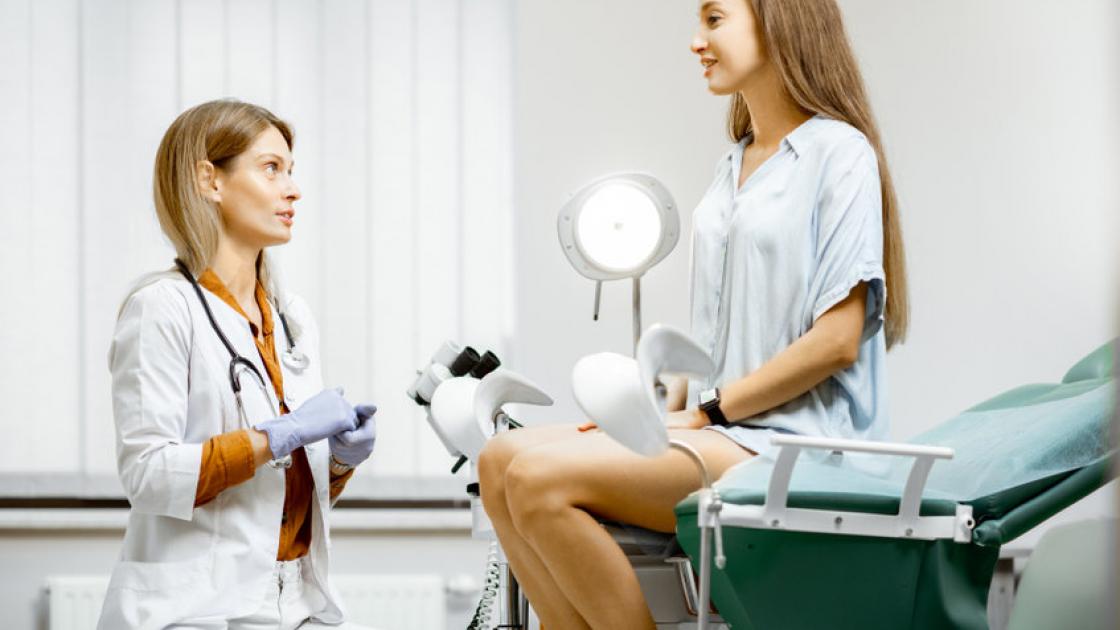
What to expect at a well woman exam
Annual well-woman visits provide an opportunity to speak with a knowledgeable physician about your health and lifestyle. There's no need to be embarrassed discussing intimate topics like reproductive health or sexual activity with your doctor. These issues are hugely relevant to your overall well-being—and our Gynecologist/Women's health providers are highly trained professionals here to help you feel informed and at ease.
In addition to helping you learn more about your health, gynecological exams are also beneficial because they can help identify early detection of treatable conditions and provide solutions for issues like painful sex, bloating, irregular periods and more.
The American College of Obstetricians and Gynecologists recommends that you see an OB-GYN (a doctor who specializes in pregnancy and female reproductive health) at least once a year. You can discuss with your provider the exact frequency of wellness visits based on your specific health situation. Here’s what to expect from these important visits.
The gynecological exam
Your well-woman exam will start off with a staff member (nurse or medical assistant) who will walk you to your own exam room. They may ask a few questions, such as whether you are currently taking any medications or supplements. A few measurements like your blood pressure and weight will be taken. After staff member leaves the exam room, you'll remove all your clothes and undergarments and put on a gown then place a sheet across your lap.
When your doctor arrives, the two of you will be able to discuss any questions or concerns you have about your reproductive and overall health. Topics could include menstruation, sexual activity, sexually transmitted infections (STIs), birth control, and family and personal health history.
Depending on your age and health needs, your doctor will likely perform a number of tests or examination techniques that comprise the gynecological exam. With a chaperone present (usually a nurse or medical assistant) your doctor will likely perform the following:
- A pelvic exam: the doctor uses a speculum to look at and check the vulva, vagina, and cervix; and then checks your internal reproductive organs (uterus and ovaries) with a gloved hand.
- A Pap test (Cervical Cancer screening): the doctor uses a small brush to collect cells from your cervix. This test usually begins at the age of 21 and is repeated based on your age and medical history.
- STI screening (if indicated): the doctor swabs the vagina and cervix
- A breast exam
To ensure these tests go smoothly, it's best to avoid sexual intercourse or the use of vaginal creams at least 48 hours prior to your exam. Also, try to schedule your annual exam when you're not on your period.
Your doctor may also request or recommend a variety of lab tests or testing to check on your health and ensure you are up to date with your health screenings. These tests may include the following:
- Blood or urine tests
- Cholesterol screening
- Diabetes screening
- Breast cancer screening (Mammogram)
- Osteoporosis screening (DEXA/bone scan)
- Colorectal cancer screening (i.e. colonoscopy)
SIU Medicine is an academic medical organization focusing on the education and training of future physicians. Sometimes our women's health providers perform well-woman visits with medical students present. You're welcome to decline having a medical student present if you prefer.
SIU Medicine is now accepting new women's health patients
At SIU Medicine, our clinical and research staff works hard to create the best possible experience for our female patients while also contributing to ongoing scientific discoveries about the women's health field. If you're due for a gynecological exam or have questions about your reproductive health, contact SIU Medicine today at 217-545-8000.




